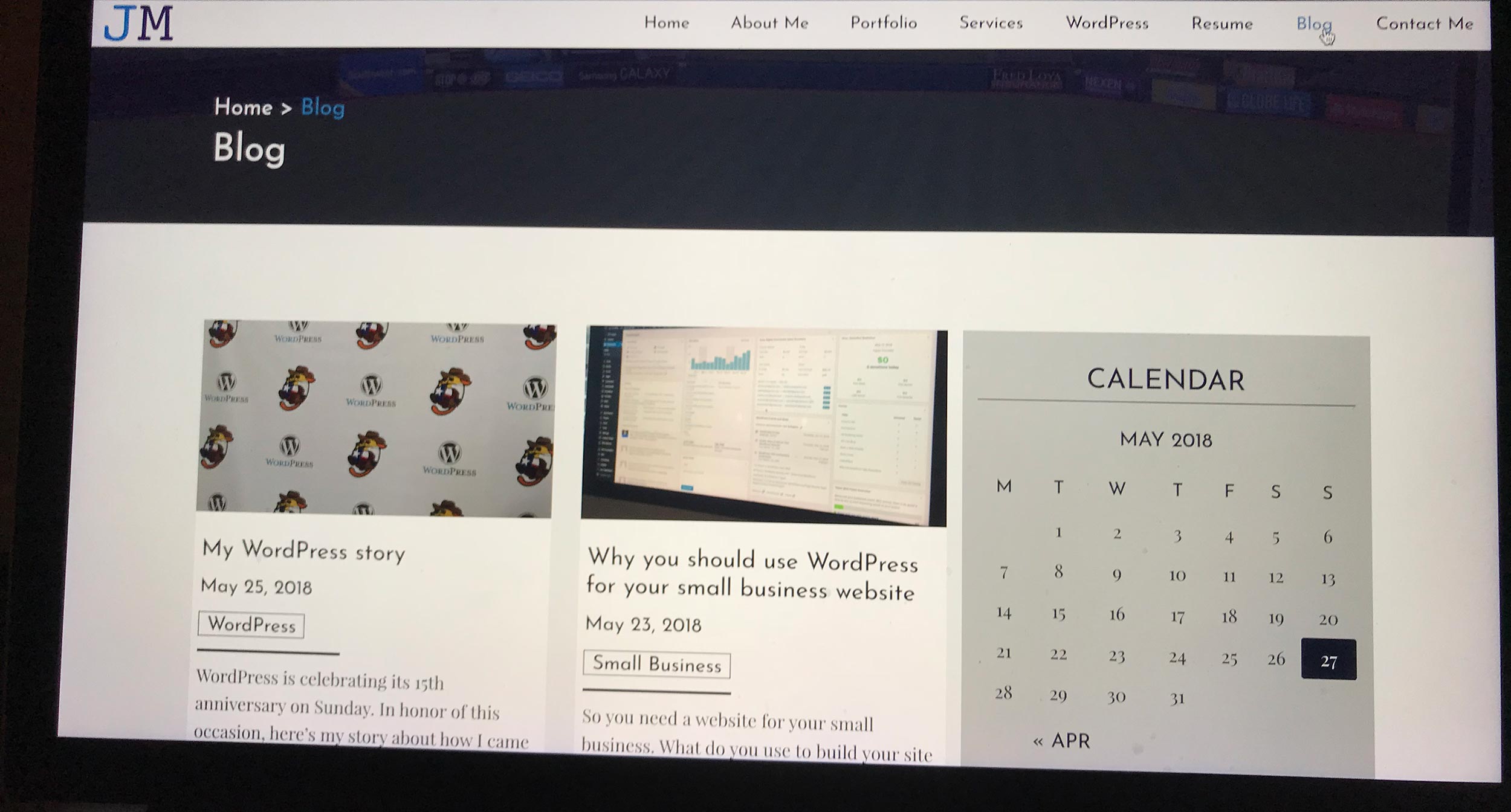If you have a website, you’ve probably heard about search engine optimization, or SEO. You might not be sure entirely what it is, but you’ve heard it a lot so it’s probably important. And you think it’s just a one-time thing
But you’re wrong. Taking care of your website SEO is not just something you set and forget. Instead, like a lot of things, it’s an ongoing process. While there are code changes that will likely be one-time fixes (assuming it’s done correctly), there are others that aren’t. You’re going to have to continually do keyword research, backlink building and more.
And in order for your website SEO to be helping as much as possible you will always have to be monitoring it and working on getting it better. So no, website SEO is not a one-time thing.
Where this misconception comes from
Like a lot of misconceptions when it comes to websites, I think this one simply comes from a lack of education. Similar to the issue with websites never needing to be updated, people just don’t understand that SEO is not just a one time thing.
I’m also not entirely sure how to fix it either. If you go through any SEO course, they tell you it’s not a one-time thing right upfront. Anyone who knows SEO knows that it’s an ongoing effort that requires regular check ins. So maybe we can be better about explaining that to the masses as early as we can when creating websites for them.
Either way, if you hear someone ask about SEO, make sure to explain to them this misconception.
Why your website SEO is ongoing
First off, SEO is a massive topic. There’s a reason people specialize in SEO and specific areas of SEO. Heck, I did a miniseries on SEO over on my YouTube channel that felt kind of like a lot and it still barely even touched the surface of website SEO.
There’s checking to make sure your code and Schema is correct so that Google can index your website correctly. And then there’s checking your backlinks that can help your domain authority and page ranking. There’s also updating your sitemap to Google so it knows which pages are the most important for your website. And that’s before we get to the most important part: keyword research.
And all of that requires ongoing care and maintenance. You have to set aside time to do each of those things on a regular basis. You need to make sure that each part of the process is working in the same direction to help your website SEO. If not, things might fall out of sync and your SEO won’t be as good as it needs to be.
Let’s Work on Your SEO
Search Engine Optimization is long and arduous task. And it can take away from your time of running your business. But if you sign up for one of the WordPress Website Care plans, you don’t have to worry about that. I’ll help you keep your SEO up and running, from making sure the code is up to snuff, helping you with sitemaps, getting you started with Google Analytics and Search Console and more. Plus you get quality web hosting, managed updates, security and more! Make sure your SEO is as optimized as possible while still being able to run your business. It’s a win-win!
Let’s Get Your SEO Taken Care OfYou should always be doing keyword research
One of the most continuous SEO processes you’re going to be doing is keyword research. If you don’t already know what keyword research is, the short of it is that it’s the process of looking up the words people are searching for in your service area so that you can create content to show up in those searches. Moz has a great introductory post if you want to take a deeper dive into keyword research.
But it is extremely important for your website SEO and it has to be checked on regularly. You really should be checking in on this at least once a week or once every two weeks, especially if you are blogging regularly.
You really need to be finding out what your potential customers are searching for. That way you can create content, be it blog posts, videos, resources, pages or other content so that you can reach them through those searches. And just like humans, those search terms changes fairly often, requiring more research.
And if you’ve run out of blog ideas, which will happen at some point, this is a great way to start brainstorming new blog post ideas.
Checking on your SEO
So how can you be regularly checking in on your website SEO over time? Well, there are fortunately a lot of ways.
On the free side of things, there is always Google Search Console. I’ve discussed this in detail in two blog posts this year where we learned what it is and navigated around our account to see what we can find. In short, Search Console allows you to see what searches your pages are appearing in, how many times they’ve appeared, how many clicks you’ve gotten from those searches and how high up in the results your pages are showing.
Then on the paid side of things, there are tools like Moz, SEMrush, Ahrefs and more that allow you to check your domain authority, see your backlinks, conduct unlimited keyword research searches and a lot more.
Also, I like to use a combination of Yoast SEO’s WordPress plugin, Google Lighthouse and Mangools’ Firefox SEO extension to check on each of my page’s SEO, including keywords, headings and best practices just to make sure my pages and posts are as optimized as possible.
Making sure you can get a good overview of your website SEO is key to making sure your pages are always optimized.
Get Insights on How to do a Small Business Website Right!
Are you looking to get some help with your small business’ website, but aren’t quite in a spot to take that next step? No worries! I’ve got you covered with a small business newsletter. This weekly newsletter will talk about a different subject related to websites and small businesses each week, as well as highlight blog posts that can help you out. This will help you optimize your business’ site as much as you can while you get yourself into a position to take the next step for your website.
"*" indicates required fields
Fix problems when they arise
Finally, you need to also be fixing errors as they arise. Otherwise, unchecked errors will hurt your standing with Google and ultimately your page rank.
So how do you check for problems? The easiest thing to do is to use Google Search Console. In addition to show you your search stats, Search Console also notifies you of errors on your site that affects its ranking. For example, if it starts to hit a lot of 404 errors, it’s going to tell you about it. Or if it’s encountering other issues with loading your content.
But it’s also starting to go deeper. It can let you know if clickable items are too close on mobile or if content is wider than the mobile with, both of which are issues that can hurt page rank. And they’re even starting to experiment with showing your site speed in Search Console as well, which is also becoming a big factor in page rank.
Also, occasionally check your pages with the Google site structure validator. This can be a good test to see if your page is using the correct Schema or structured data so that it gets indexed correctly. And it’s a good way to make sure your site’s code is still good.
Finally, if you start to notice your stats dropping, that’s a good indication that you need to fix something, whether it’s doing better keyword research, getting better at building a backlink profile, fixing code or something else.
But just know this: search engine optimization is not a one-time thing. It requires continual time and effort to make sure it’s working and helping your website. Like a lot of things, it’s a marathon and not a sprint.







